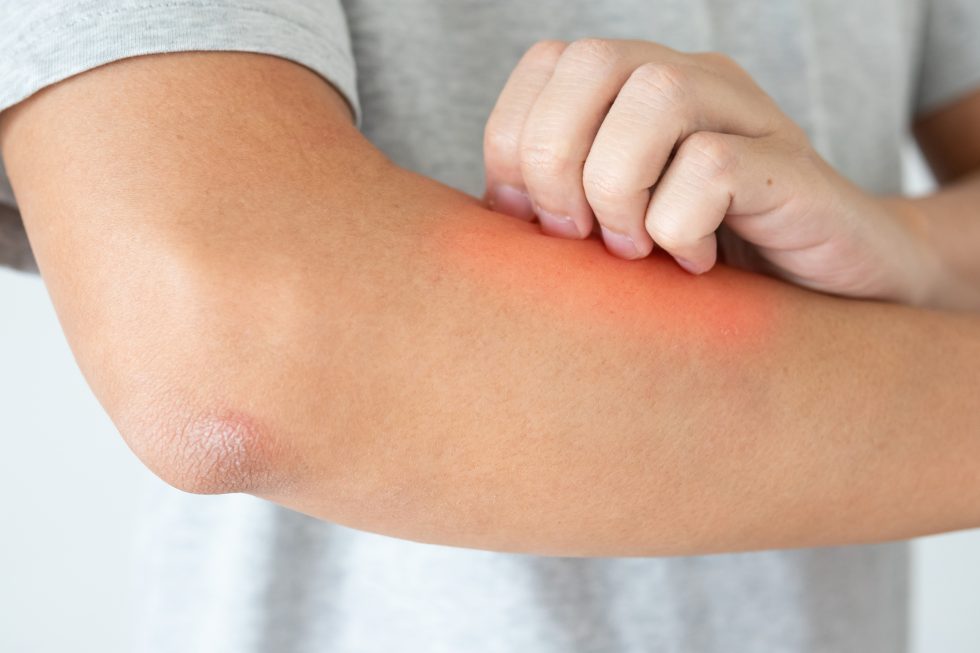
Why Does My Skin Get Dry in the Winter?
As winter approaches, Hickory residents might find themselves dealing with that dreaded dry, parched skin. Whether you’re checking out cool planes at the Hickory Aviation Museum, hunting for treasures at the Hickory Furniture Mart, or just trying to keep up with the daily chaos, dry skin can quickly go from a minor nuisance to a major irritation. This winter, be proactive and take some preventive steps, so you and your crew can enjoy the Catawba County winter season without the discomfort of dry skin.
Winter is coming, and with it comes the dreaded dry skin. You know the feeling: your elbows and knees feel like sandpaper, and your hands start cracking. Learn more about winter can bring dry skin and find some solutions to keep your skin smooth and happy all winter long.
What are the causes of dry skin during winter?
There are several factors that contribute to dry skin during winter. These include:
- Reduced humidity in the air. As the temperature drops, the air can’t hold as much moisture. This means that the air is literally pulling moisture from your skin.
- Cold temperatures. When the temperature is cold, the blood vessels in your skin constrict. This means that less blood is flowing to your skin, and less oxygen and nutrients are being delivered to your skin cells. This can make your skin more prone to dryness.
- Indoor heating. Indoor heating systems can also dry out the air, which can make your skin feel dry and itchy.
- Harsh soaps and detergents. Harsh soaps and detergents can strip away the natural oils from your skin, making it more susceptible to dryness.
- Excessive showering or bathing. Bathing too often, especially in hot water, can also dry out your skin.
Most Vulnerable Areas for Dry Skin
While dry skin can affect any part of the body, there are certain areas that are more prone to dryness, especially during the winter months. These areas are often thinner and more exposed to the elements, making them more susceptible to moisture loss and irritation. Here are some of the most vulnerable areas for dry skin:
Elbows
The skin on the elbows is naturally thicker and has fewer oil glands than other areas of the body. This makes it more prone to dryness and cracking. In addition, the elbows are often exposed to friction and rubbing, which can further exacerbate dryness.
Hands
Our hands are constantly exposed to the elements, including cold air, harsh soaps, and frequent handwashing. This can strip away the skin’s natural oils, leaving them feeling dry, cracked, and itchy.
Knees
Like the elbows, the skin on the knees is thicker and tends to be drier. This is because the knees are often in contact with hard surfaces, such as floors and chairs. Regular moisturization is crucial to prevent dryness and roughness in this area.
Face
The face is the most exposed part of our body, and it is also one of the most delicate. The skin on the face is thinner and more sensitive than the skin on the rest of the body. This makes it more prone to dryness, especially in the area around the mouth. The skin around the mouth is particularly vulnerable to dryness due to constant exposure to cold air and wind.
Feet
Our feet are often trapped in shoes and socks, which can create a warm, moist environment that is ideal for the growth of bacteria and fungi. This can lead to dryness, cracking, and even infection.
How to Prevent Dry Skin During Winter
Winter brings a host of challenges, from the biting cold to the holiday hustle and bustle. But for many, the most unwelcome aspect of winter is the dreaded dry skin. As the temperatures plummet and the humidity levels drop, our skin becomes increasingly susceptible to dryness, leaving us feeling flaky, itchy, and uncomfortable.
Fortunately, there are several steps you can take to keep your skin hydrated and healthy all winter long. Here are some habits that will help your skin this winter:
Humidify Your Home
When indoor air becomes dry, it can quickly rob your skin of its moisture, leading to dryness and irritation. To combat this, consider investing in a humidifier. These devices add moisture to the air, creating a more comfortable environment for your skin.
When selecting a humidifier, choose one that is the appropriate size for your home. An oversized humidifier can make your home too damp, potentially causing mold and mildew. However, an undersized humidifier may not provide enough moisture to combat dry skin.
Avoid Hot Showers
While hot showers may provide temporary warmth and comfort in the winter, they can wreak havoc on your skin’s moisture levels. The hot water strips away the skin’s natural oils, which are essential for maintaining a protective barrier and locking in moisture. Furthermore, hot water can damage keratin cells, the building blocks of the epidermis, the outermost layer of the skin. Keratin cells play a crucial role in preventing water loss and protecting against environmental irritants. When keratin cells are damaged, they become less effective in retaining moisture, leading to dry skin.
Instead of hot showers, opt for lukewarm showers. This simple change can make a significant difference in preventing dry skin and maintaining healthy skin throughout the winter.
Moisturize Regularly
Moisturizing is an essential step in any skincare routine, but it’s especially important during the winter months when skin is more prone to dryness. Choose a moisturizer that is thick and creamy, and apply it generously to your skin after bathing or showering, while your skin is still damp.
Look for moisturizers that contain ceramides and hyaluronic acid. Ceramides help to repair and strengthen the skin’s barrier, while hyaluronic acid attracts and binds moisture to the skin.
Protect Your Skin
Whenever you venture outside in the winter, make sure to bundle up and protect your skin from the harsh elements. Here are some tips:
- Wear gloves: Cold air can quickly dry out your hands, so wear gloves whenever you’re outside to protect them from the elements. Choose gloves made from a breathable material like wool or fleece, and avoid gloves made from synthetic materials that can trap sweat and make your hands feel even drier.
- Cover up your face: A scarf can help keep your neck and face warm, and a hat will protect your scalp and ears. Choose a scarf and hat made from soft, natural materials like wool or cotton to avoid irritating your skin.
- Don’t forget sunscreen: Even though the sun may not seem as strong in the winter, it’s still important to protect your skin from its harmful UV rays. Apply sunscreen with an SPF of at least 30 to all exposed skin, including your face, neck, and hands.
Stay Hydrated with a Healthy Winter Diet
A healthy diet is essential for overall skin health, and it’s especially important during the winter when your skin is more prone to dryness. Here are some tips for staying hydrated with a healthy winter diet:
- Eat plenty of fruits and vegetables: Fruits are packed with water, which contributes to keeping your skin moist and preventing dryness. Vegetables are a treasure trove of vitamins A, C, and E, all of which play a vital role in maintaining skin health and preventing premature aging.
- Incorporate omega-3 fatty acids: Omega-3 fatty acids, often found in fatty fish like salmon, tuna, and sardines, are essential for maintaining skin elasticity and preventing inflammation.
- Drink plenty of water: Water is essential for overall hydration, and it’s especially important during the winter when you’re more likely to lose fluids through dry air. Aim to drink eight glasses of water per day, and more if you’re exercising or sweating a lot.
If you’re suffering from unbearable dry skin, don’t wait any longer. Contact or visit AFC Urgent Care Hickory today for prompt, considerate care.


